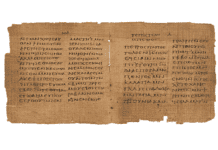In its report, USCIRF said the Taliban’s “brutal application of its extremist interpretation of Sunni Islam” has resulted in religious minorities in Afghanistan facing “harassment, detention and even death due to their faith or beliefs.”
“The one known Jew and most Hindus and Sikhs fled the country,” according to the report. “Christian converts, Baha’is and Ahmadiyya Muslims practiced their faith in hiding due to fear of reprisal and threats from the Taliban. Years of progress toward more equitable access to education and representation of women and girls disappeared.”
Three African countries – CAR, Nigeria and Sudan – “have given [USCIRF] cause for alarm based on shifting circumstances in 2021,” Maenza said at the news conference.
CAR, which was removed from USCIRF’s SWL recommendations in 2021, committed “egregious and ongoing violations of religious freedom, including targeted abductions, torture and killings of Muslims” last year, she told reporters. The deteriorating conditions prompted USCIRF to recommend CAR’s return to the SWL list this year.
Nigeria has become a “hotbed of persecution, particularly in the north,” Maenza said. Christians and Muslims have been the targets of attacks by both government and non-government actors. After designating Nigeria as a CPC in 2020, the State Department removed Africa’s most populous country from the list last year.
RELATED: Christians in Afghanistan Feel ‘Thrown to the Wolves’ as Taliban Regains Control
USCIRF is “deeply concerned about the potential for backsliding in Sudan,” Maenza said. The commission removed Sudan from CPC recommendation because of its “dramatic religious freedom improvement since 2019,” but the October 2021 military takeover “now threatens many of those advancements,” she said.
Sen. James Lankford, R-Okla., said in a statement that USCIRF’s recommendation of Afghanistan and Nigeria as CPCs “is a big step forward to hold their governments accountable for their persecution of people of faith. We must continue to call out persecution where we see it.”
USCIRF’s annual report “is one way we are able to shine light on religious liberty abuses and hold other nations accountable,” he said.
Though the report covers 2021 conditions, USCIRF also addressed Russia’s February invasion of and continuing attacks on Ukraine during the news conference.
“USCIRF is concerned that [Russia] will expand its religious freedom abuses as seen in occupied Crimea and Donbas,” said commissioner Khizr Khan. “Russia has deliberately shelled houses of worship which were sheltering civilians. We strongly condemn that abuse, violation of human rights, violation of religious freedom … and we hope that these atrocities will cease very soon.”
RELATED: NEW: The Top 5 Trends From the 2022 World Watch List
In its report, USCIRF commended the U.S. government for various actions taken during 2021, including:
- The State Department’s designation of Russia as a CPC for the first time.
- The State Department’s determination under both the Trump and Biden administrations that China is guilty of genocide in its treatment of the Uyghurs, a primarily Muslim group, and other ethnic minorities in western China.
- Enactment of the Uyghur Forced Labor Prevention Act, which bans the importation of goods made by forced labor in China.
- The State Department’s declaration the military in Burma (Myanmar) has committed genocide against the predominantly Muslim Rohingya people.
- The Biden administration’s nomination – and Senate confirmation – of Rashad Hussain as ambassador at large for international religious freedom and Deborah Lipstadt as special envoy to monitor and combat anti-Semitism.
USCIRF – which is made up of nine commissioners selected by the president and congressional leaders – tracks the status of religious liberty worldwide and issues reports to Congress, the president and the State Department. Congress and President Clinton established USCIRF in 1998 with the enactment of the International Religious Freedom Act.
This article originally appeared at Baptist Press.











